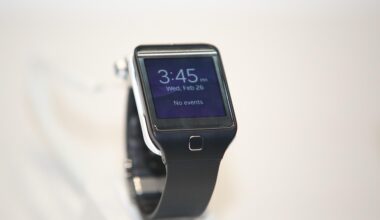How Social Media is Empowering Women Rowers Worldwide
In recent years, social media has profoundly impacted many sports, with rowing being no exception. Platforms like Instagram, Twitter, and Facebook have enabled female rowers to share their journeys and accomplishments on a global scale. This exposure has fostered a sense of community and belonging among women in rowing. Furthermore, it has attracted attention from sponsors and media outlets, increasing visibility for the sport. While there are challenges persistently faced by women athletes, social media serves as a tool for empowerment, providing them with a unique platform to showcase their talent. Additionally, these platforms allow them to connect with fellow rowers, share training tips, and discuss challenges they encounter. Female rowers can now create supportive networks that cultivate camaraderie, encouragement, and inspiration. These connections prove crucial for building resilience and motivation as they navigate complex sporting landscapes. Moreover, a shared space on social media also opens up discussions about gender equality in sports. Consequently, social media not only serves as a promotional tool but becomes a catalyst for change, driving the movement towards equality and empowerment for women in rowing.
Social media platforms have also played a critical role in increasing the accessibility of rowing for women. Previously, the sport was predominantly viewed through the lens of elite competitions and high-performance standards. However, social media has democratized this view, encouraging more women to participate in various aspects of rowing. Many enthusiastic amateurs share their experiences, which helps demystify the sport and alleviate intimidation for newcomers. This influx of relatable content inspires others to take up rowing, turning it into a widely accessible and enjoyable activity. Societies and rowing clubs are leveraging this newfound interest by establishing programs tailored towards beginners and women-specific teams. Notably, events highlighted through social media such as local regattas and races may also spark interest among casual viewers. Consequently, as they see real women of diverse backgrounds engaging in this sport, potential athletes feel more inclined to join in. Social media also facilitates easier access to training information and resources, allowing aspiring female rowers to acquire knowledge about technique and fitness training. Through educational content shared on these platforms, they can learn from experts and peers alike, leveling the playing field for women looking to advance in rowing.
Creating Role Models through Storytelling
One of the most significant benefits of social media is the ability to tell stories. Women rowers have utilized this aspect to share their inspiring journeys, triumphs, and challenges. By sharing personal narratives, they allow others to see them not just as athletes but as multifaceted individuals navigating various life experiences. This relatability resonates deeply with aspiring rowers. Seasoned athletes take to their feeds to relay insights on overcoming setbacks, pursuing dreams, and achieving goals. Such transparency humanizes the athlete experience, fostering deeper bonds with audiences. Highlighting both victories and struggles also counters the often polished portrayals of athletes, creating authenticity that young women can aspire to emulate. Role models emerge as female athletes actively participate in conversations about mental health, work-life balance, and advocacy within the sport. This storytelling encourages open discussions around the challenges women face in rowing and sports in general. These examples of leadership and perseverance inspire more women to engage with the sport seriously. As they share their paths, they contribute to a growing archival narrative highlighting women’s contributions to rowing over time.
Moreover, social media has proven to be an effective advocacy tool. Women rowers often utilize these platforms to raise awareness about issues like equality, pay disparities, and access to resources. The visibility offered by these platforms enables them to initiate conversations around these critical topics. Through hashtags, campaign collaborations, and various outreach strategies, they collect support and share important information. Surrounding the topic of equal pay, women rowers have vocalized their experiences, highlighting the discrepancies in support and sponsorship compared to their male counterparts. This dialogue is crucial for progressing toward systematic changes within the sporting industry. Engaging with followers who resonate with their cause helps build a community of advocates who can collectively push for change. This makes social media a powerful ally to amplify their voices, drawing attention to disparities that often go unnoticed. By sharing their stories and experiences of inequality, they create pressure on governing bodies to reevaluate current norms. Thus, social media transcends being just a networking tool, evolving into a platform for advocacy that continues to challenge the status quo within sports, contributing to a more equitable framework.
The Impact of Mentorship on Female Rowers
Mentorship is another area where social media has transformed women’s rowing. Numerous female rowers leverage their online platforms to connect with mentees, providing guidance and support. These connections are pivotal for young athletes approaching the sport. By offering insights into training regimens, race day strategies, and mental conditioning, experienced rowers can influence aspiring athletes’ growth trajectories. Often, the mentoring relationships extend beyond just athletics to encompass life skills applicable outside the sport. Through social media, they share motivational stories, foster engagement through discussions, and elevate dialogue on navigating issues encountered as women in sports. These platforms facilitate direct communication, breaking traditional barriers that may have previously limited mentorship opportunities. Many athletes have reported feeling more empowered and supported through these online connections, enabling them to overcome obstacles more effectively. Moreover, the success of the mentorship model can inspire more women to become role models themselves. As they progress within the sport, these athletes are likely to pay it forward, creating a cycle of empowerment. This results in a robust community that thrives on mutual support, collaboration, and encouragement, ultimately enriching the rowing landscape for women everywhere.
The sphere of social media has also contributed to shaping perceptions of femininity within the sport of rowing. In a traditionally male-dominated arena, the visibility of women athletes on these platforms allows for broader discussions about body image and athletics. Female rowers showcase diverse body types and promote strength, resilience, and skill over aesthetic conformity. Thus, social media acts as a vehicle for shifting cultural norms, empowering women to embrace their authenticity in sports. Furthermore, these discussions extend to advocating for women’s rights and participation in sports altogether. The normalization of strong athletes through shared images and competitions helps dismantle stereotypes, facilitating a more inclusive environment. It encourages younger generations to redefine their understanding of femininity and strength. As female rowers share their daily training routines and real-life challenges online, they inspire others to pursue their passion regardless of societal expectations. Through the lens of social media, women athletes are redefining what it means to be successful. By contributing to this evolving narrative, women rowers strive to inspire a future where all athletes can thrive, free from limitations associated with gender conformity.
Future Prospects for Women in Rowing and Social Media
The future of women in rowing and the role of social media continue to evolve together. As more women find their voices online, they inspire young athletes to participate and aspire to greatness in rowing. The ongoing rise of platforms dedicated to sports has made a remarkable difference in ensuring diversity and representation across all levels of competition. Federations and organizations are increasingly aware of the power of social media in shaping narratives and fostering communities dedicated to women in sports. Wider acceptance of female rowers means greater support systems and resources directed towards them. High-profile female athletes become torchbearers for this movement, leveraging their influence to ignite passion among future generations. The unprecedented access to mentorship through social platforms is paving the way for long-term advancements in women’s rowing. As discussions around equality persist, social media will remain an indispensable ally in eradicating systemic barriers. As women continue to amplify their voices online, the momentum towards a more inclusive environment grows stronger. With time, this could lead to changes in sponsorship policies and opportunities, fostering an excellent future for women in rowing empowered by their collective strength.
In summary, social media has emerged as a powerful tool for women in rowing, empowering female athletes across the globe. These platforms enable them to share experiences, broaden the audience for the sport, and connect with others facing similar challenges. The ability to raise awareness around equality issues and advocate for change marks a significant shift in women’s empowerment and representation within athletics. Additionally, mentorship and storytelling play vital roles in fostering deeper connection and understanding among rowers. As athletes navigate through obstacles, they create pathways for aspiring rowers to follow. The future looks promising, with social media continuously evolving to crunch barriers and facilitate equal opportunities. Collaborations, campaigns, and greater visibility indicate a positive trajectory for women in rowing. As more women strive to influence and engage within this sport, it will undoubtedly inspire a culture of empowerment and resilience among future female athletes. Indeed, with the power of social media, women can reshape the narrative surrounding their involvement in rowing, leading to a more inclusive future that champions equality and celebrates diversity in sports.





